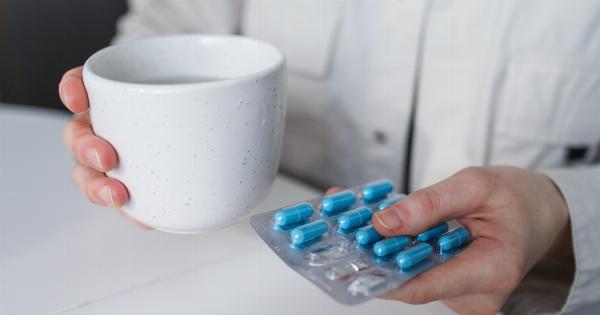Fertility and menopause are two important stages in a woman’s life. Understanding the intricacies of these processes is crucial for women of all ages.
In this comprehensive guide, we will explore fertility and menopause in detail, covering their definitions, signs, symptoms, and potential treatments.
What is Fertility?
Fertility refers to a woman’s ability to conceive and give birth to a healthy baby. It typically occurs during a woman’s reproductive years, which begin at puberty and end with menopause.
Fertility is influenced by various factors, including hormones, age, overall health, and lifestyle choices.
Signs of Fertility
There are several signs indicating that a woman is fertile:.
- Regular menstrual cycles: A regular menstrual cycle usually indicates that a woman is ovulating and thus capable of conceiving.
- Presence of cervical mucus: The consistency and appearance of cervical mucus change during ovulation, becoming clear, slippery, and stretchy.
- Basal body temperature (BBT) changes: BBT rises slightly during ovulation, indicating that a woman is fertile.
Factors Affecting Fertility
Various factors can have an impact on fertility:.
- Age: Fertility declines as women age, particularly after the age of 35.
- Hormonal imbalances: Hormonal imbalances, such as polycystic ovary syndrome (PCOS), can affect fertility.
- Underlying medical conditions: Certain medical conditions, such as endometriosis or uterine fibroids, can interfere with fertility.
- Lifestyle factors: Smoking, excessive alcohol consumption, poor diet, and stress can negatively impact fertility.
Treatments for Infertility
If a couple is experiencing difficulties conceiving, there are several treatment options available:.
- Fertility medications: Medications can help stimulate ovulation or regulate hormonal imbalances.
- Intrauterine insemination (IUI): IUI involves inserting sperm directly into the uterus during ovulation.
- In vitro fertilization (IVF): IVF is a procedure where an egg is fertilized outside the body and then implanted into the uterus.
- Surrogacy: In cases where a woman can’t carry a pregnancy, a surrogate can carry the baby to term.
Introduction to Menopause
Menopause is a natural stage in a woman’s life marking the end of her reproductive years. It is diagnosed when a woman has not had a menstrual period for twelve consecutive months.
Menopause is a result of the decreased production of hormones, particularly estrogen and progesterone, by the ovaries.
Signs and Symptoms of Menopause
Menopause is often accompanied by various signs and symptoms:.
- Irregular periods: Menstrual cycles may become unpredictable before they stop altogether.
- Hot flashes: Sudden feelings of warmth, often accompanied by sweating and a rapid heartbeat.
- Night sweats: Hot flashes that occur primarily at night, leading to excessive sweating during sleep.
- Vaginal dryness: Decreased estrogen levels can lead to vaginal dryness and discomfort during intercourse.
Dealing with Menopause
There are several ways to manage the symptoms of menopause:.
- Hormone replacement therapy (HRT): HRT involves taking medications that contain estrogen and progesterone to alleviate menopausal symptoms.
- Regular exercise: Engaging in regular physical activity can help reduce the severity and frequency of hot flashes.
- Healthy lifestyle: A balanced diet, avoiding triggers such as caffeine and alcohol, and practicing stress-reducing techniques can help manage menopausal symptoms.
- Vaginal lubricants and moisturizers: These over-the-counter products can help combat vaginal dryness and discomfort.
Conclusion
Fertility and menopause are two significant milestones in a woman’s life. Understanding the signs, symptoms, and potential treatments for both can empower women to make informed decisions about their reproductive health.
Whether trying to conceive or navigating menopause, seeking professional advice and maintaining a healthy lifestyle are crucial aspects of the journey.





























